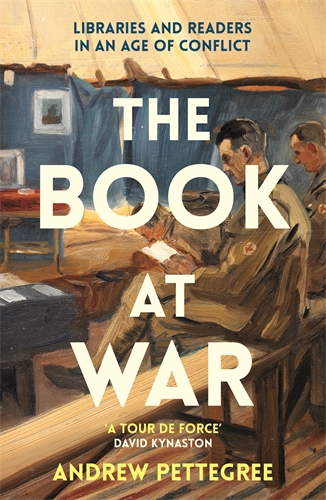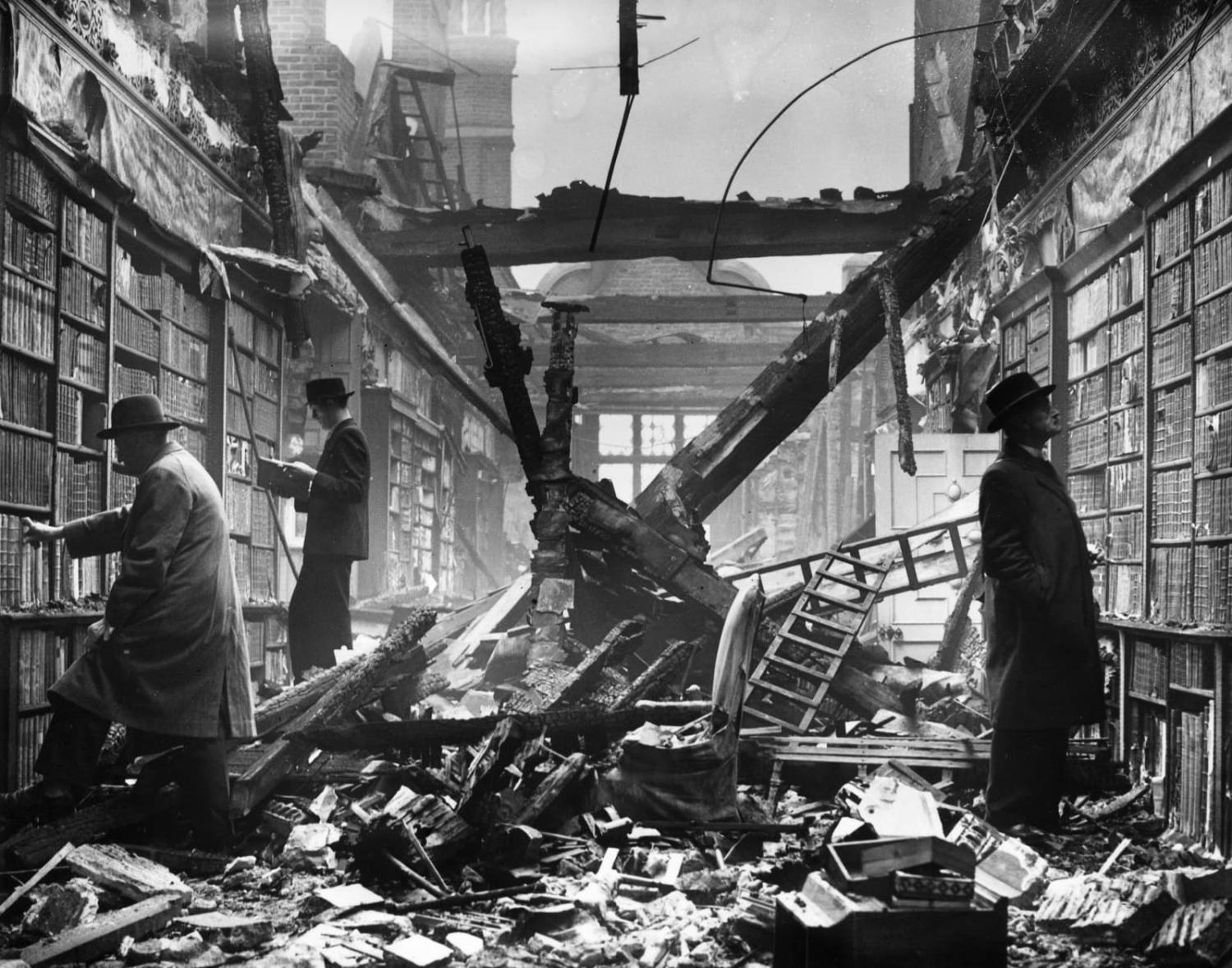Book review: The Book at War by Andrew Pettegree (Profile Books, 2024)

Millennia before Gutenberg invented the printing press, the Book of Ecclesiastes warned that “of making many books there is no end”. Andrew Pettegree would take that judgment as a compliment rather than a complaint, one validating his celebration of books and the libraries that house them.
Pettegree’s title, The Book at War, suggests an intellectual trek from Thucydides and Sun Tzu through Clausewitz to Robert Caputo and Tim O’Brien. His subtitle, “Libraries and Readers in an Age of Conflict”, narrows without quite defining his field. That focus turns out to be an appraisal of how the major European combatants in the Second World War produced, used, preserved and disseminated printed matter. In most of the sections, concise material on the First World War is included, heavily emphasising things British.
Pettegree maintains that “books were weapons in the war of ideas”. Pamphlets, leaflet drops, newspapers and magazines are also assessed as skirmishers in the ideas war. In addition, the literary credentials of Hitler, Stalin, Churchill and de Gaulle are burnished once more. “This war of ideas would be fought by men who staked their careers on the power of words.”
As a disgruntled former assistant librarian, Mao does not quite rank in that company, at least until the Chinese leader’s inspired decision to encourage Edgar Snow to publish interviews with him conducted in a cave.
Rather than vainly claim that the pen is mightier than the sword, Pettegree concentrates on ways in which pens, authors, books and libraries buttressed the war effort. A more colourful narrative might have exhumed stories such as Joshua Hammer’s tale of the “bad-ass” librarians of Timbuktu. More on Japan and the British Dominions may have buttressed the narrative. So too might more extensive commentary on war correspondents, heroes such as Ernie Pyle, Martha Gellhorn and Vasili Grossman, employed to witness and transmit the sufferings of real-life, real-time combat.
Pettegree reasonably points out that professional literature (collated research, analysis, statistics, diagrams and theorising) matters as much to a scientist as equipment, chemicals and laboratories. Officials who hoovered up all that data before it was stolen or bombed are rightly commended, as are the brains behind supplying books for the troops. The US Armed Services Editions win high praise; Zane Grey’s contribution of nine lurid Westerns was shaded by 12 chauvinistic episodes from Horatio Hornblower.
Pettegree’s subject provides ample license for digressions. When the US Army requested Americans to send in postcards of potential battlefields (1941), they received mainly snaps of equestrian statues and seagulls. Guantanamo Bay’s library has swelled to 18,000 volumes. Too many British publishers colluded in suppressing George Orwell’s Animal Farm until after the war.
What happens now to such reverence for books? A recent survey found that 46 per cent of Americans read at most one book each year. Book bans have snuck back in a few American states. Too many “engineers of the human soul”, to borrow Stalin’s description of authors, can still be gulled into promoting State propaganda. Perhaps “making many books” is one remedy.

